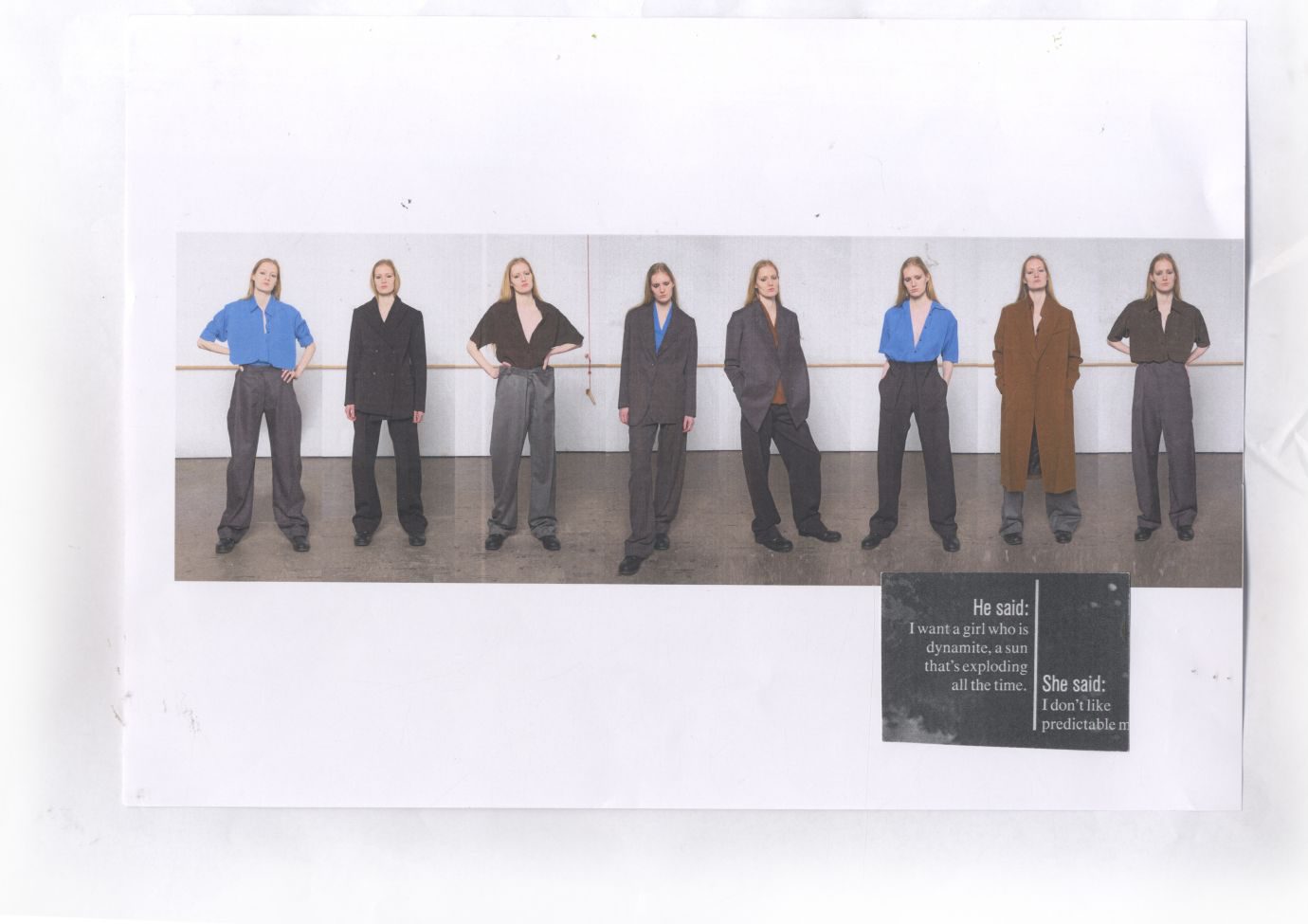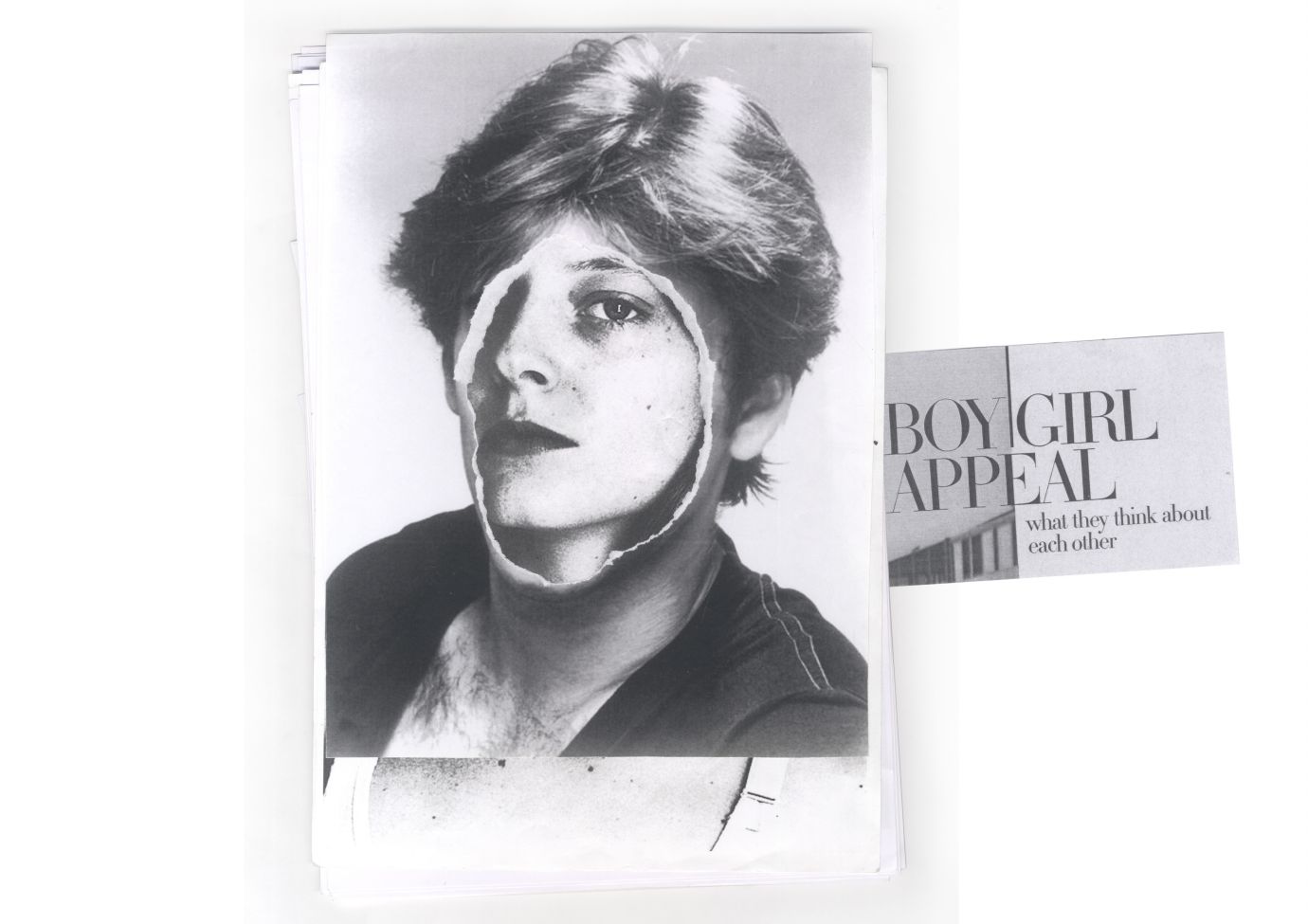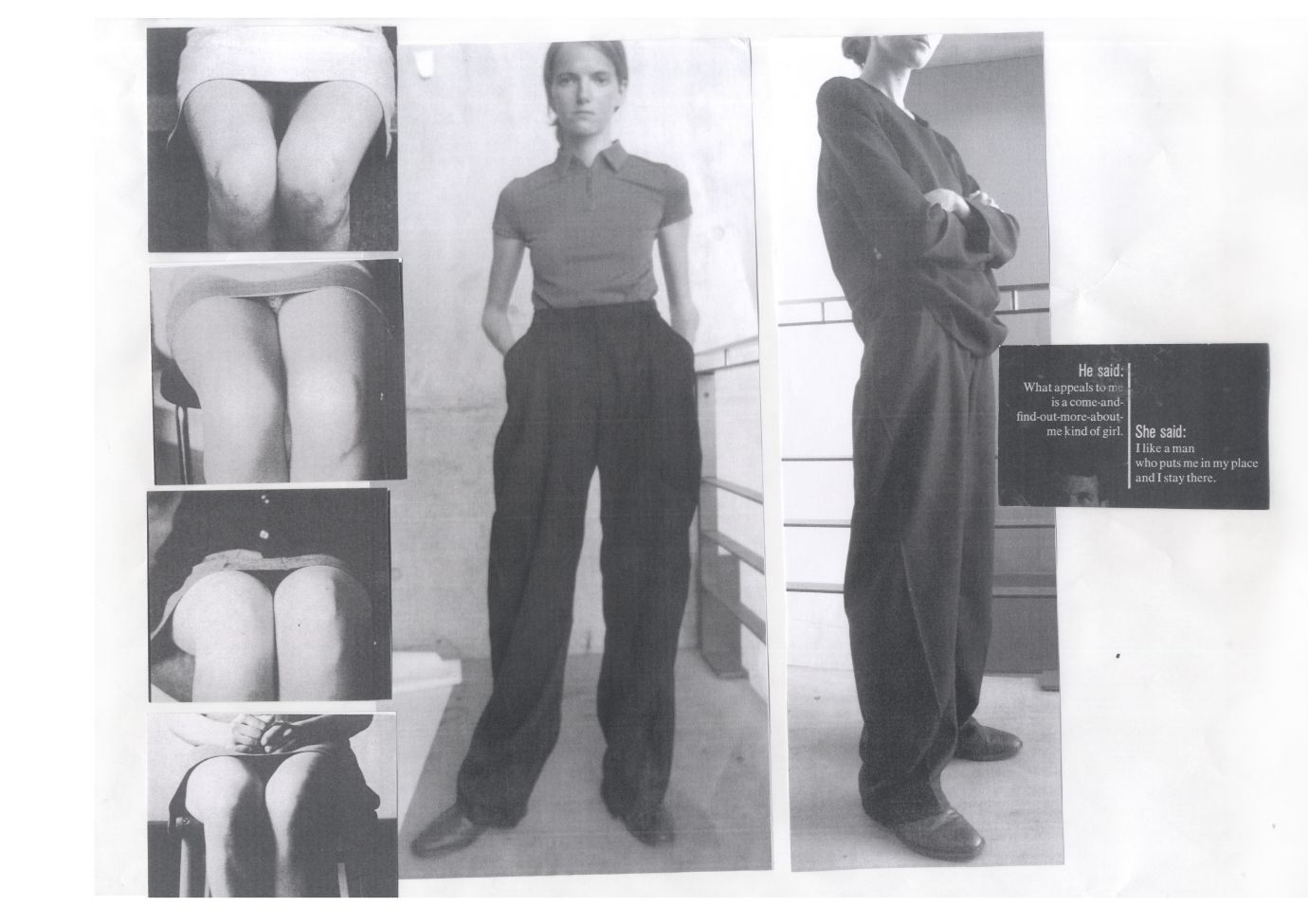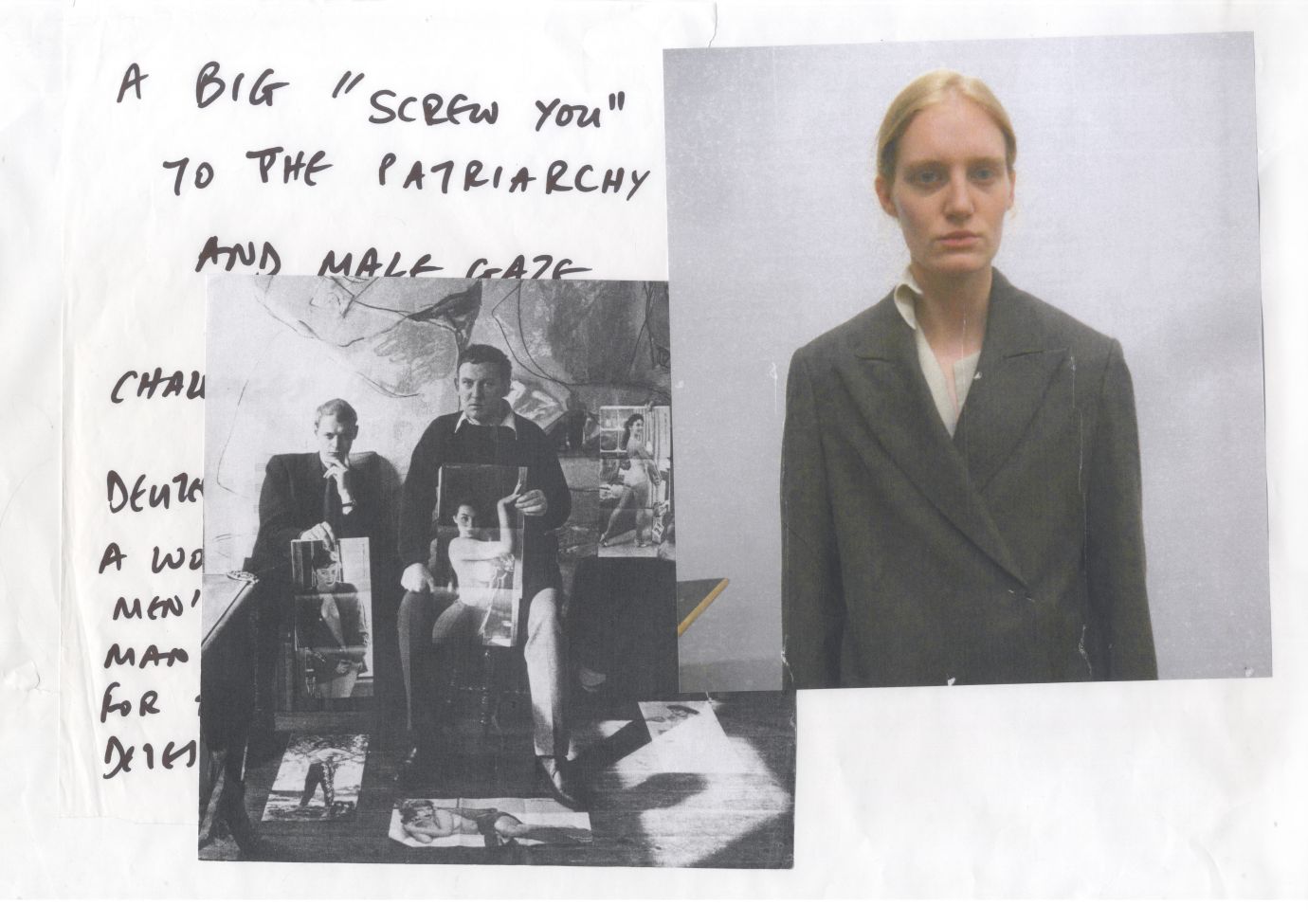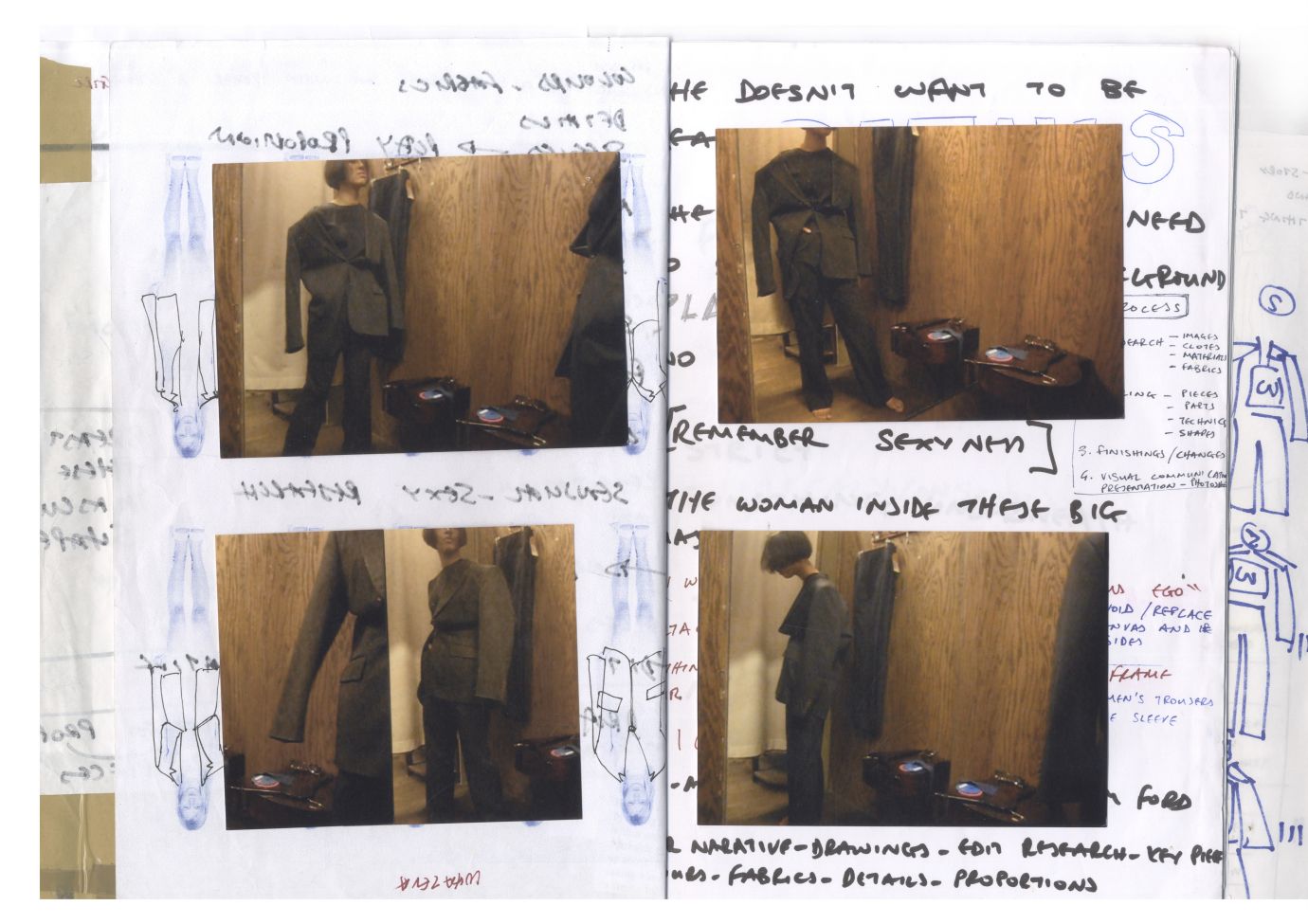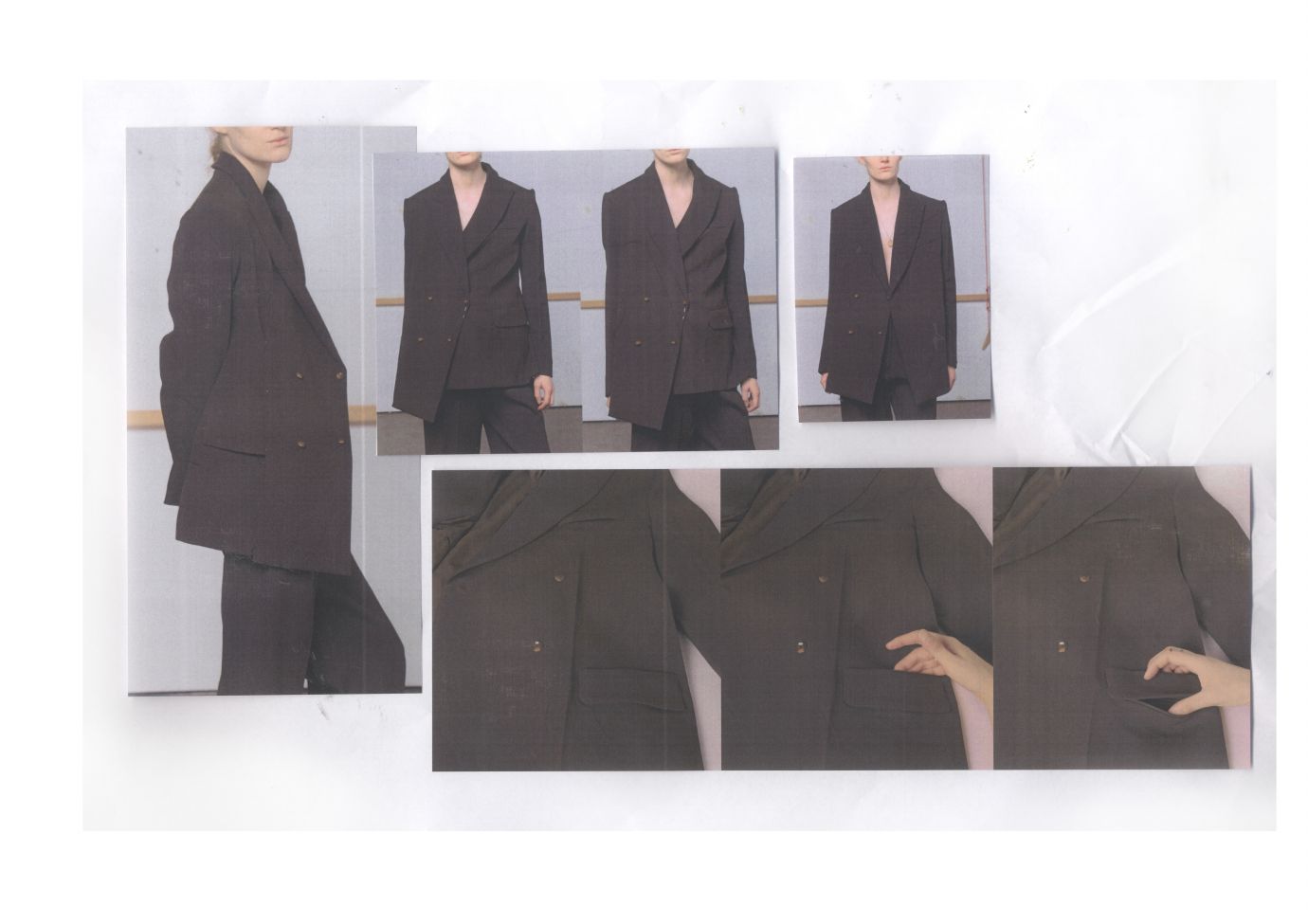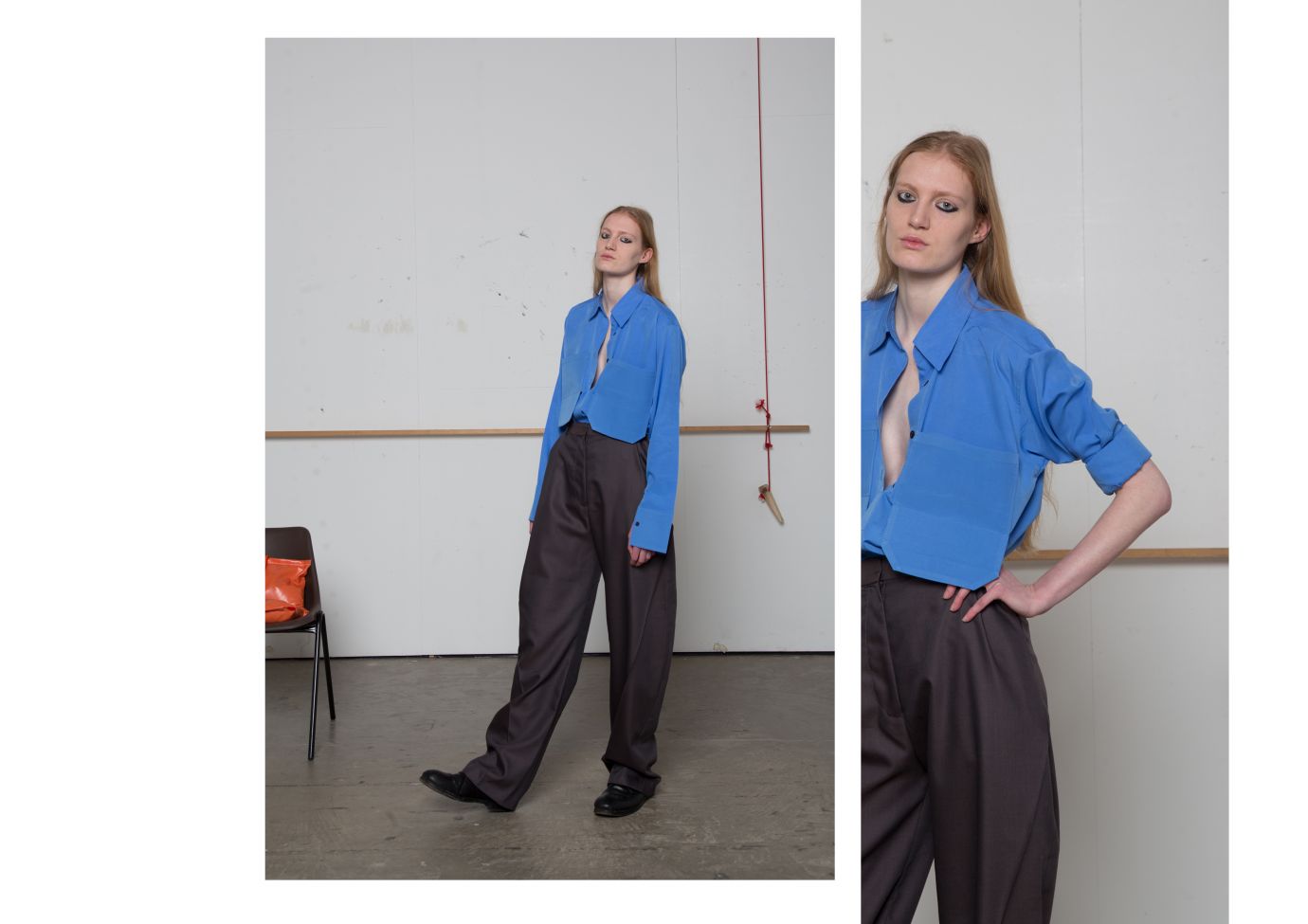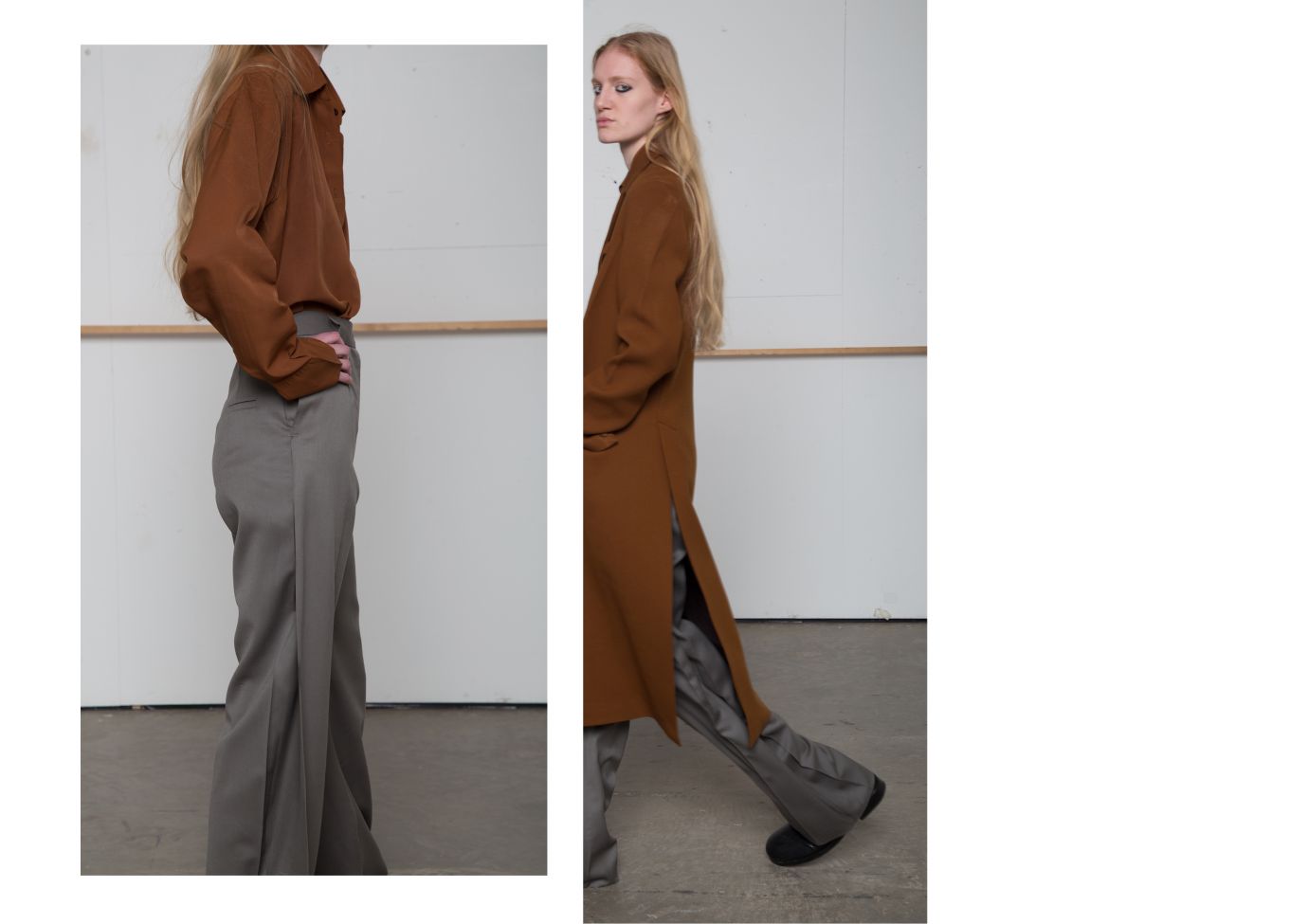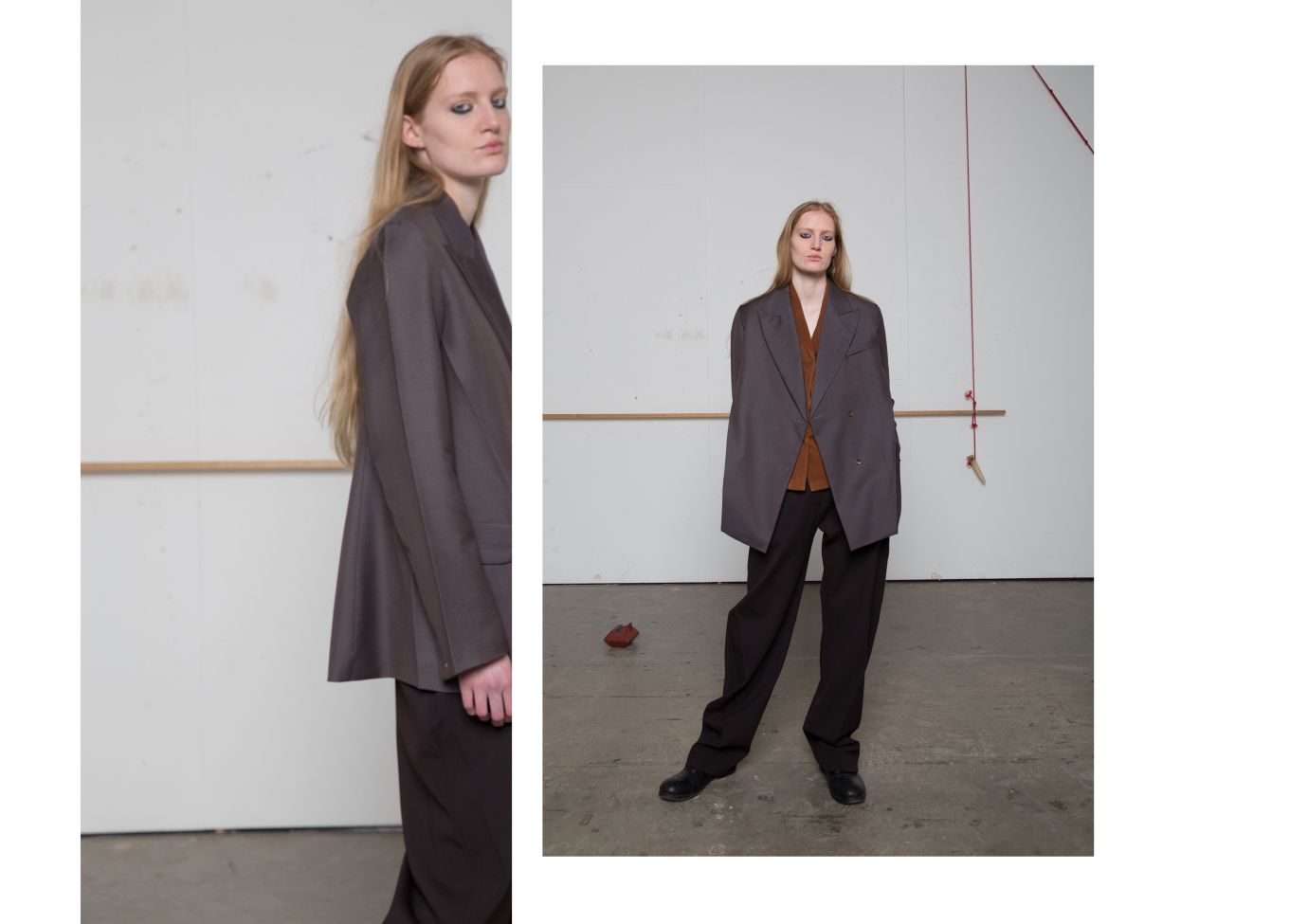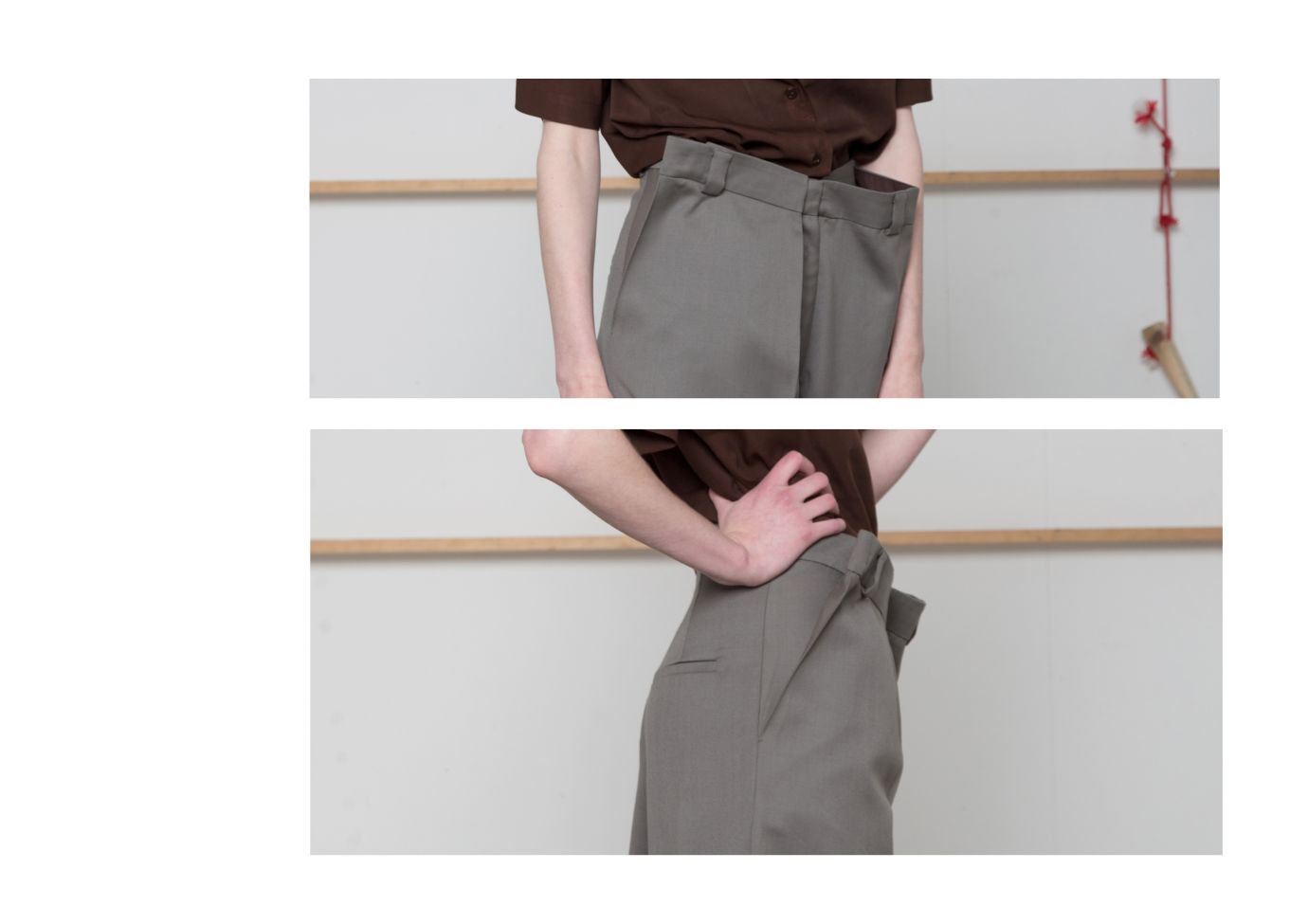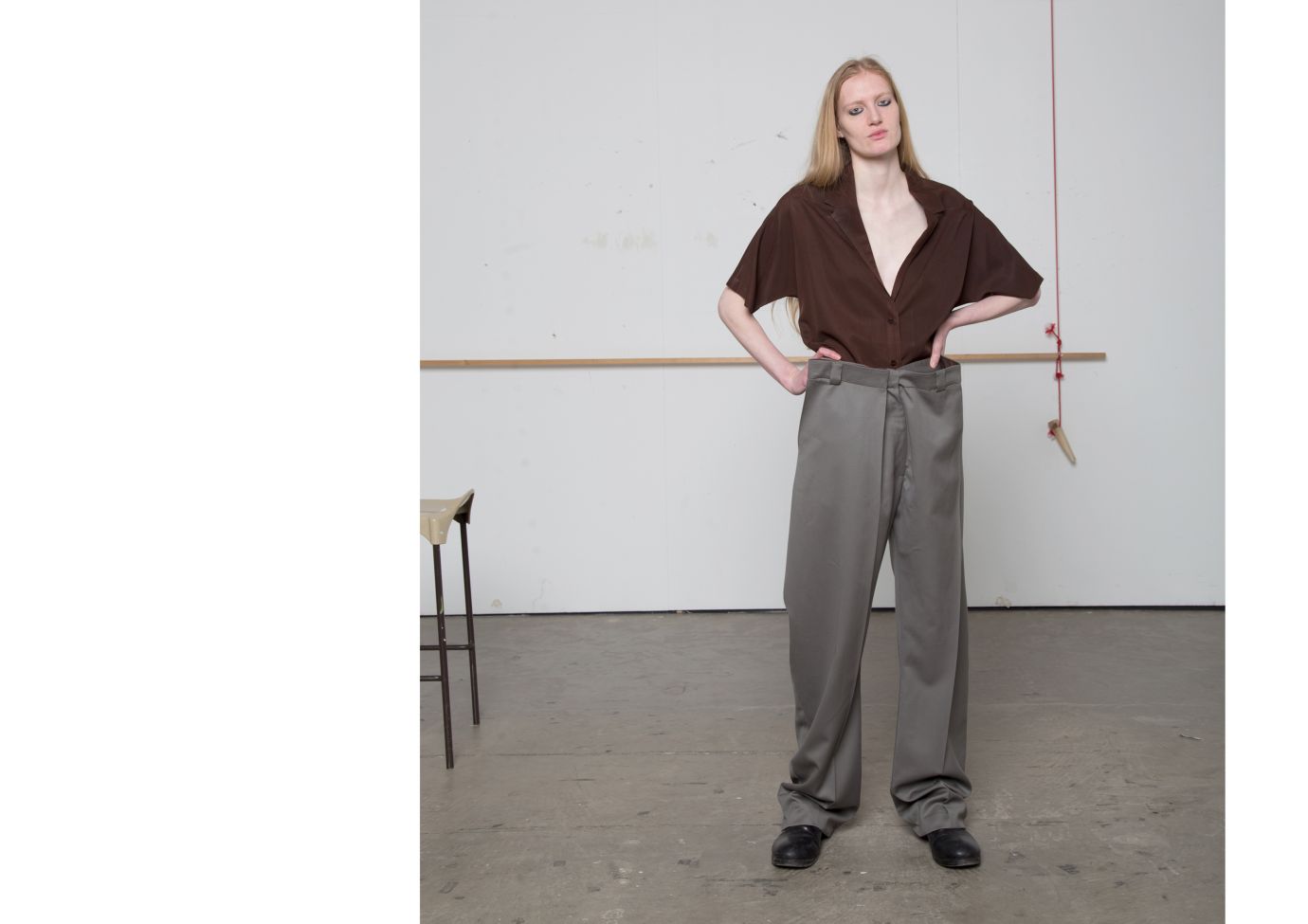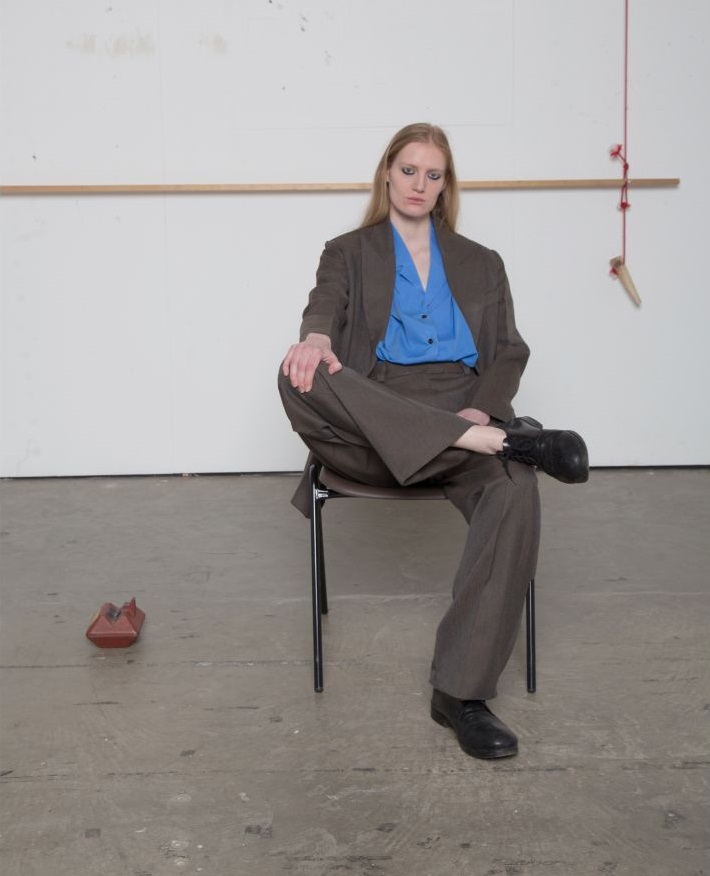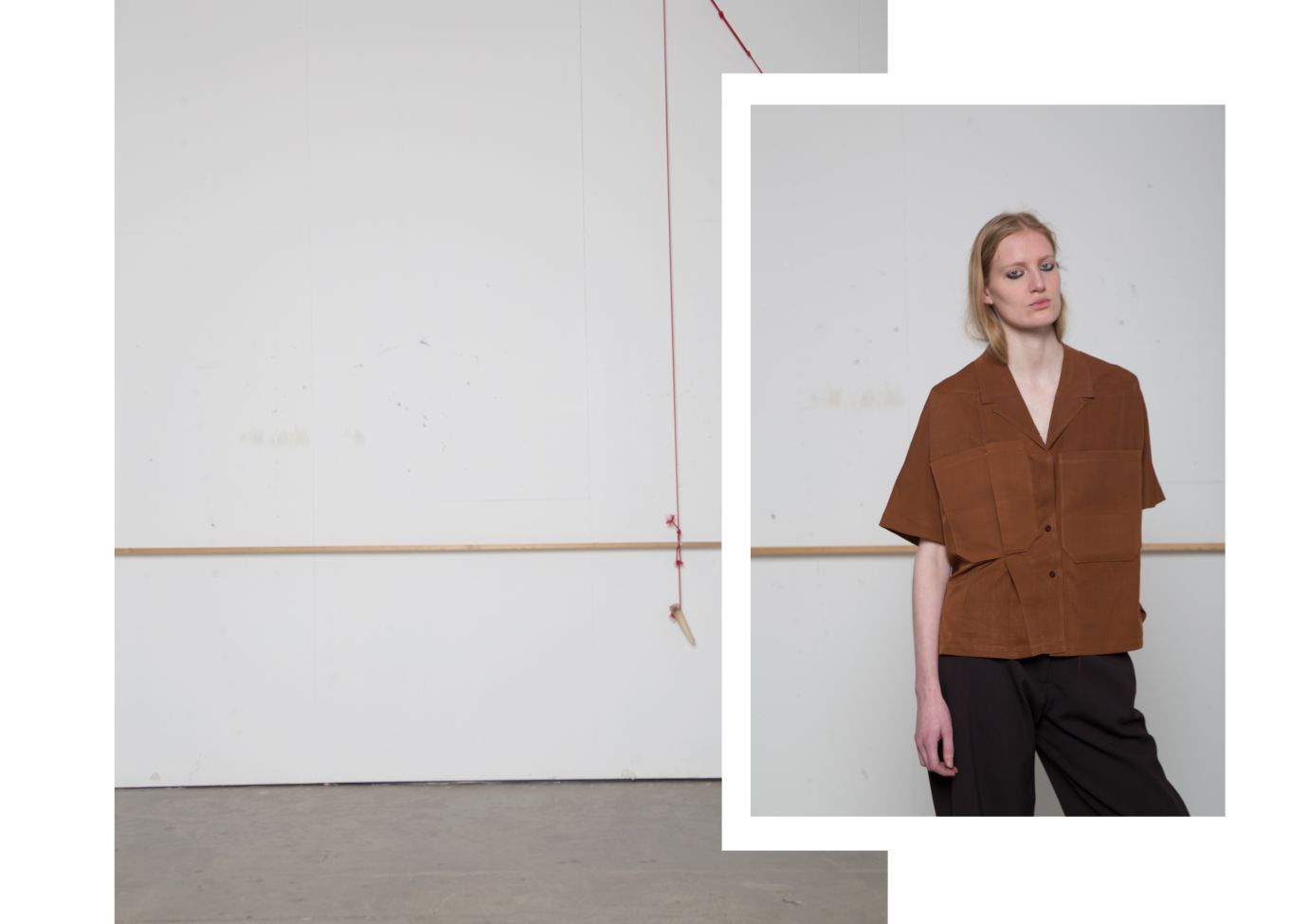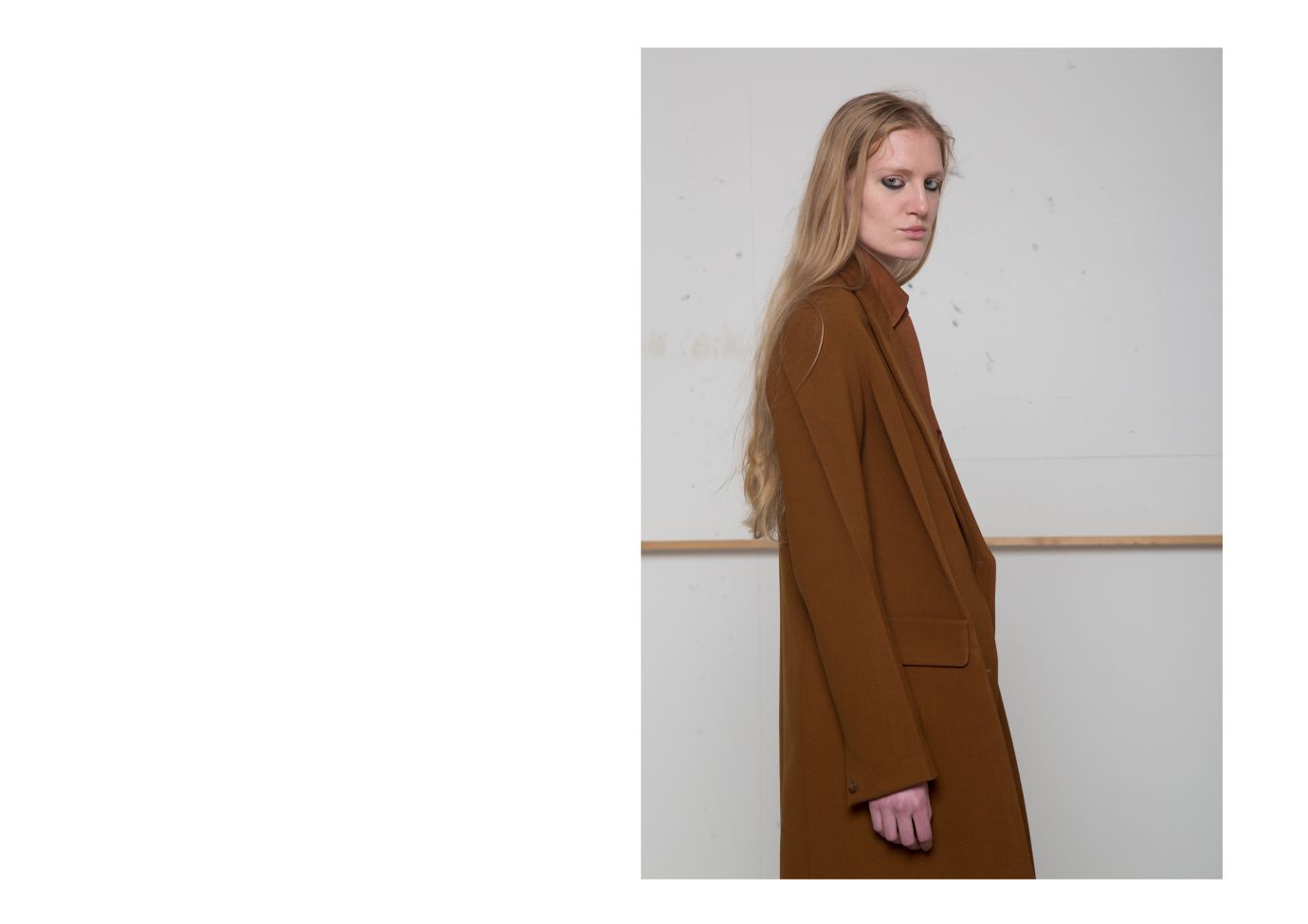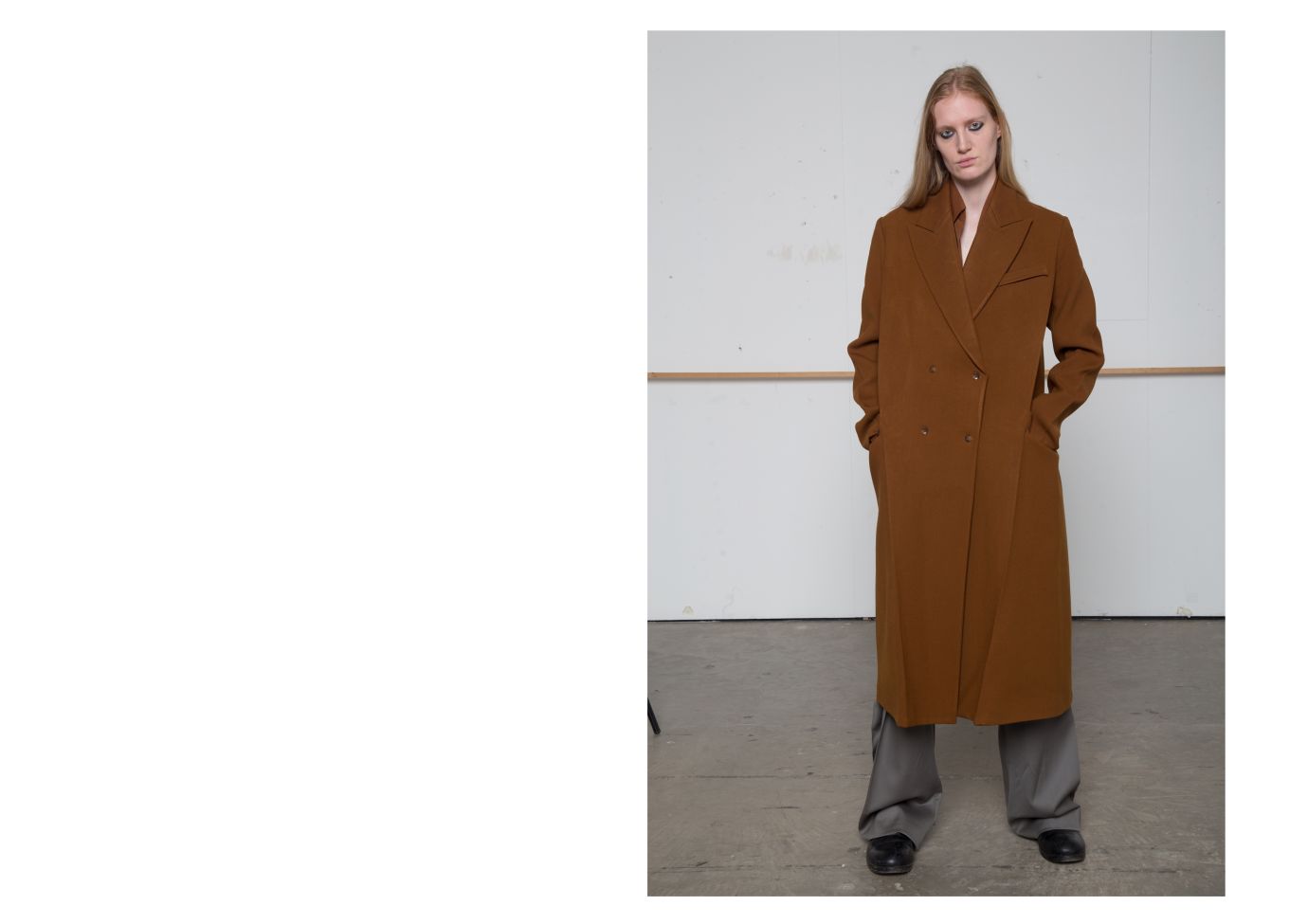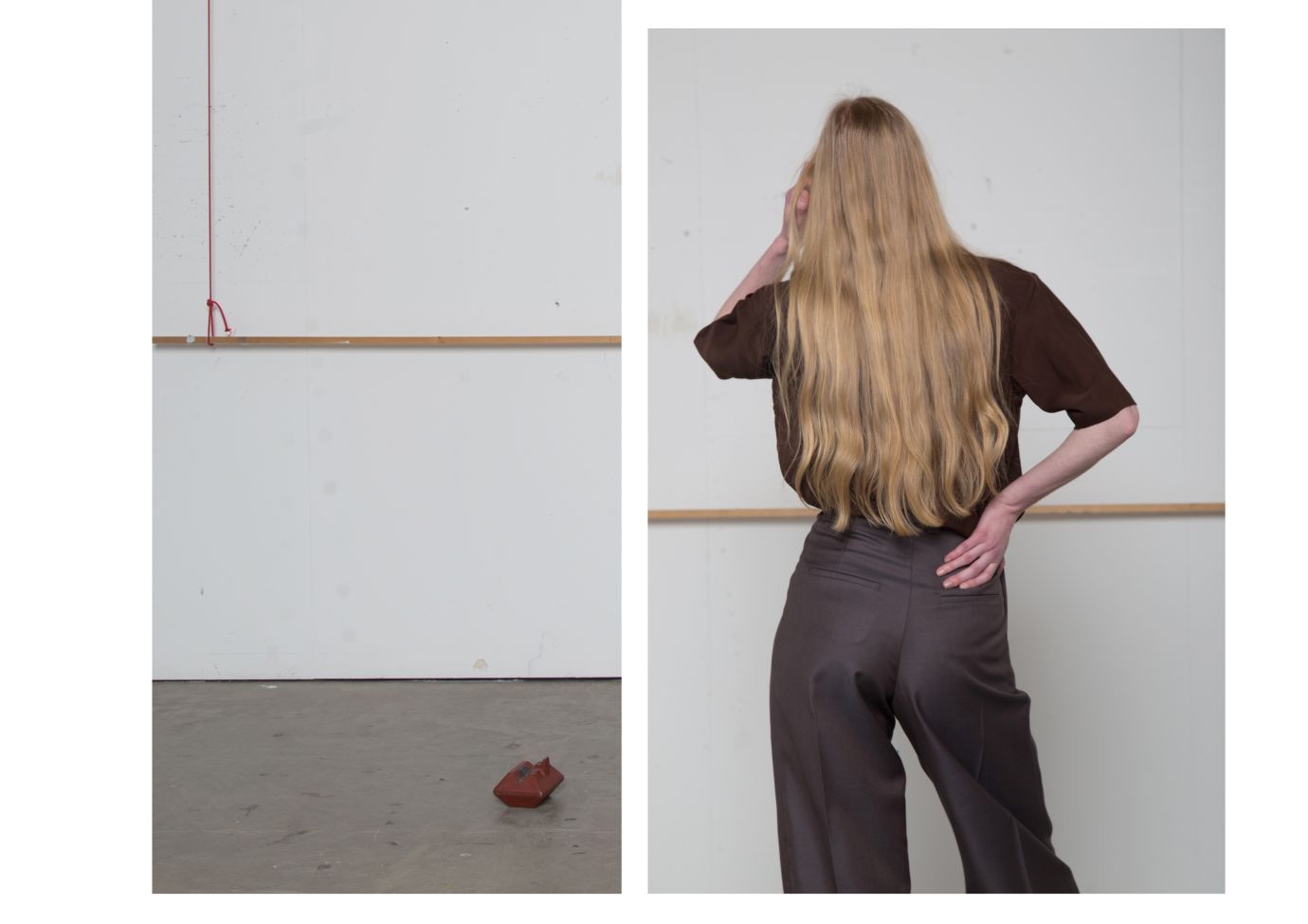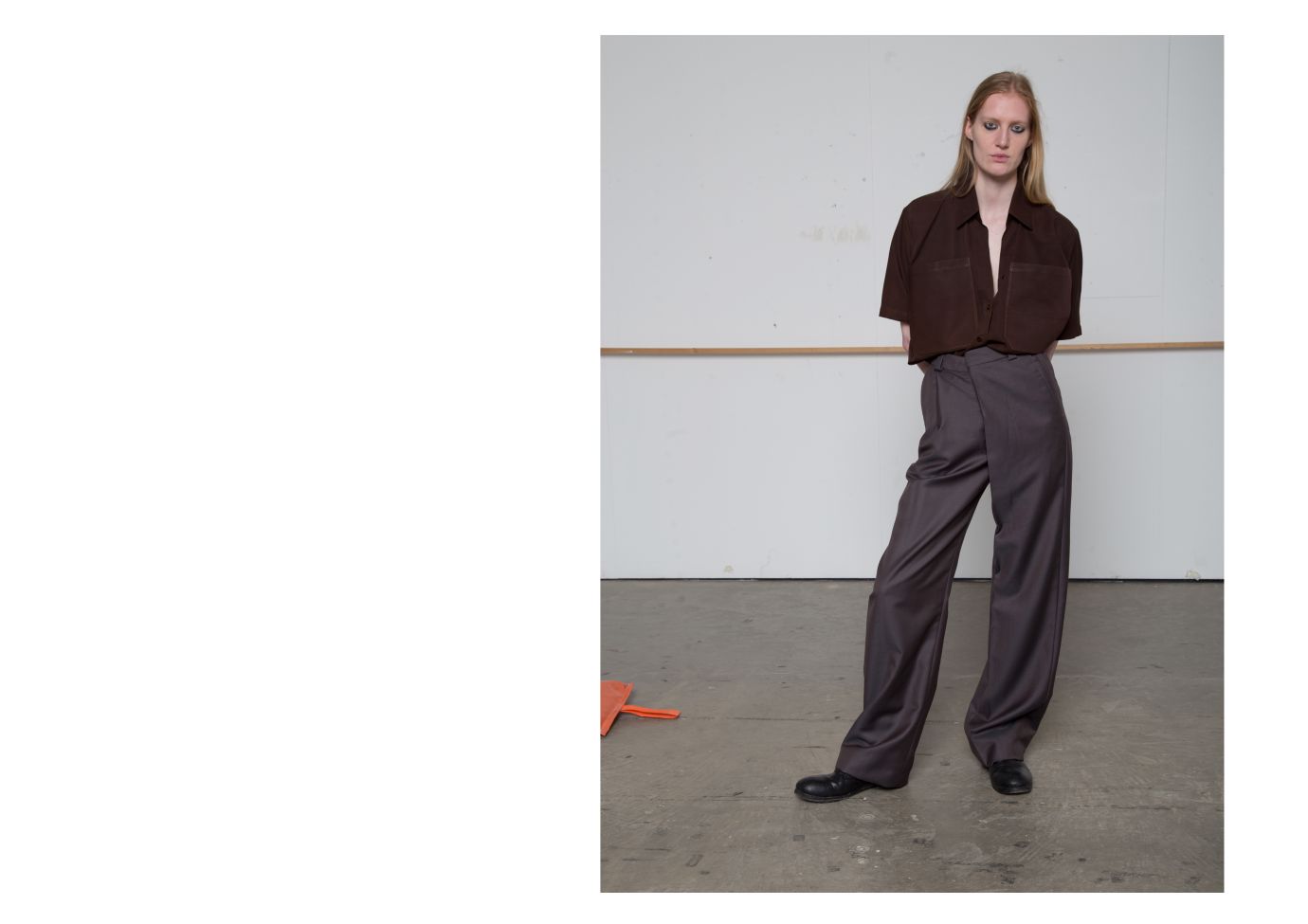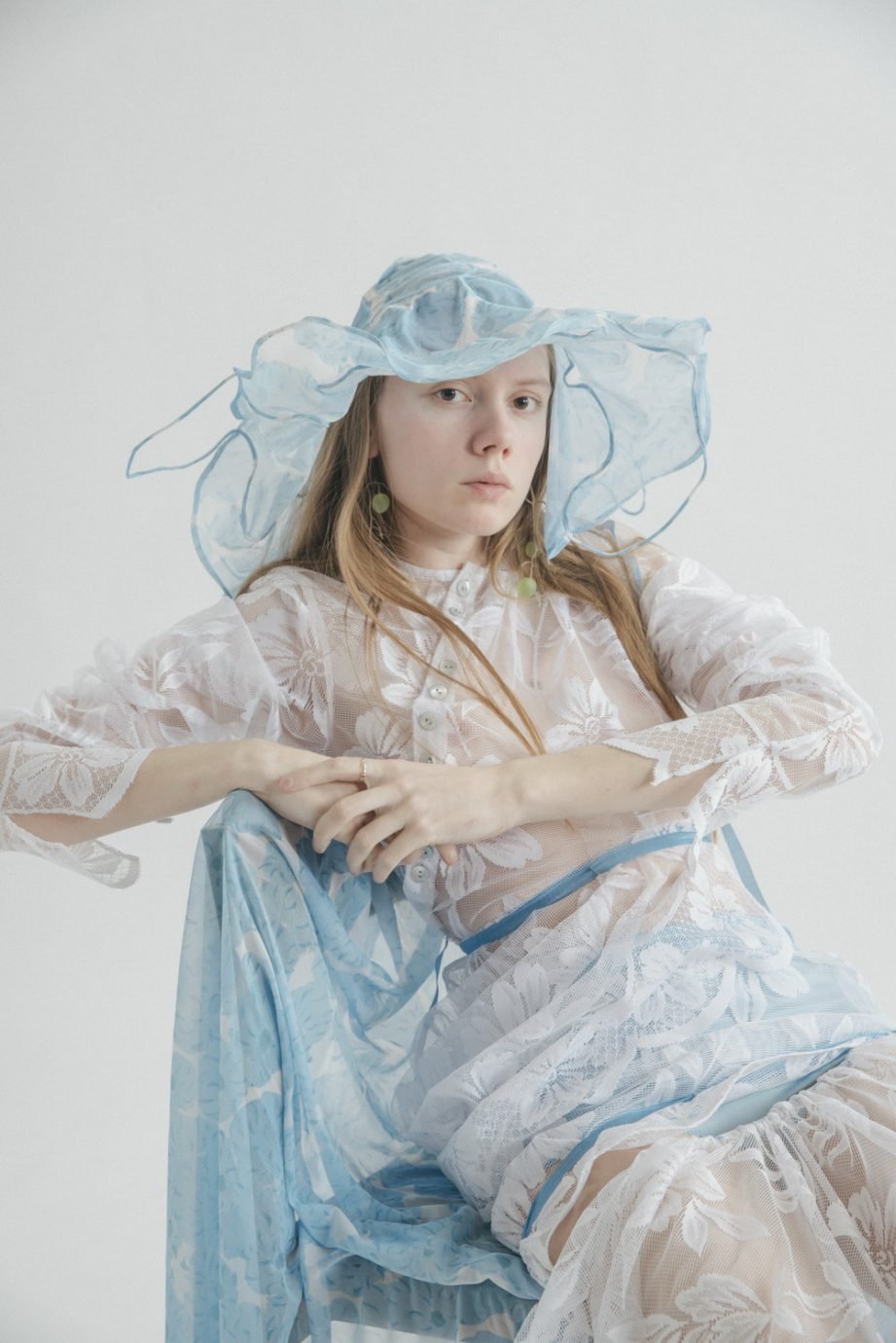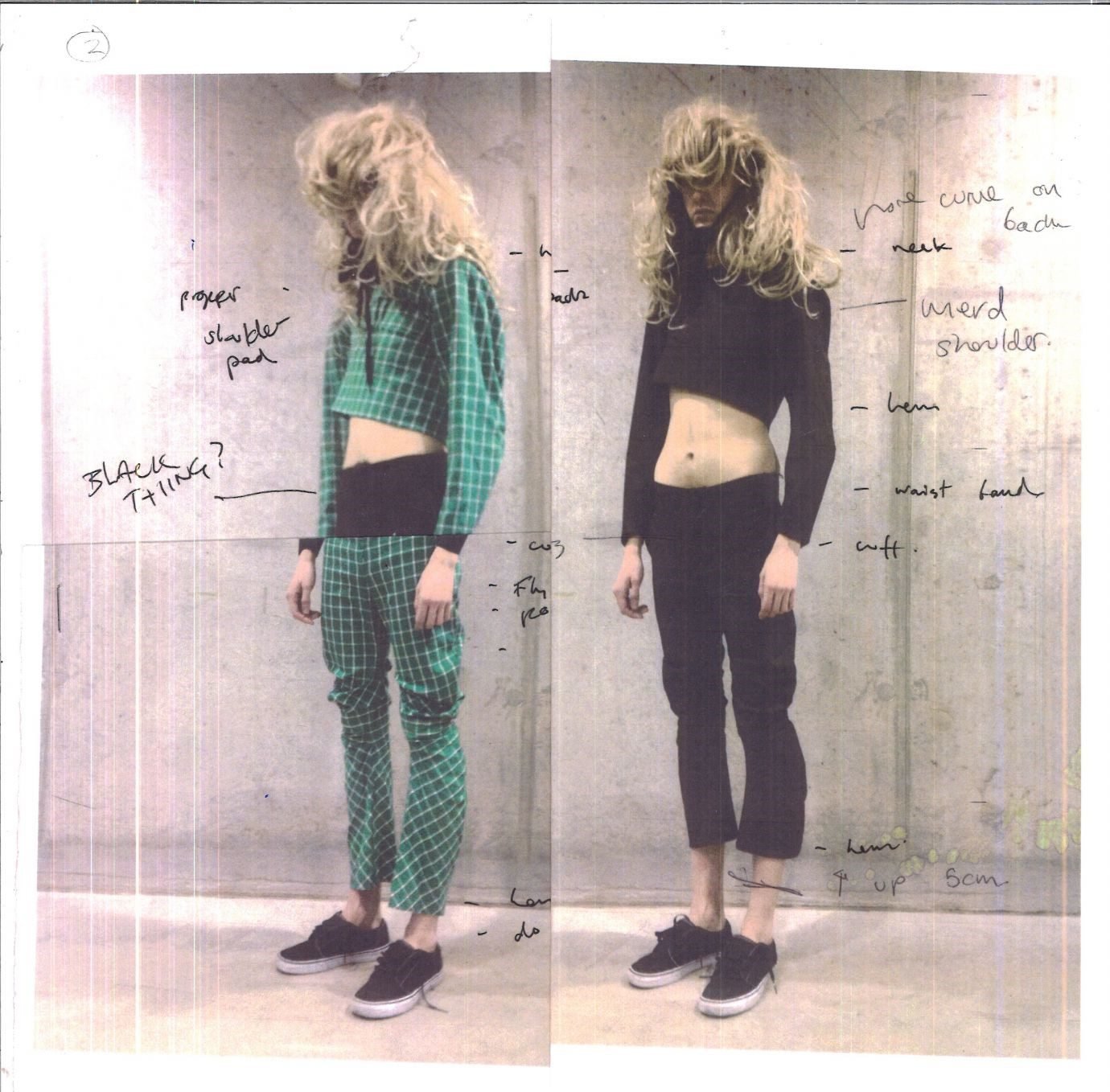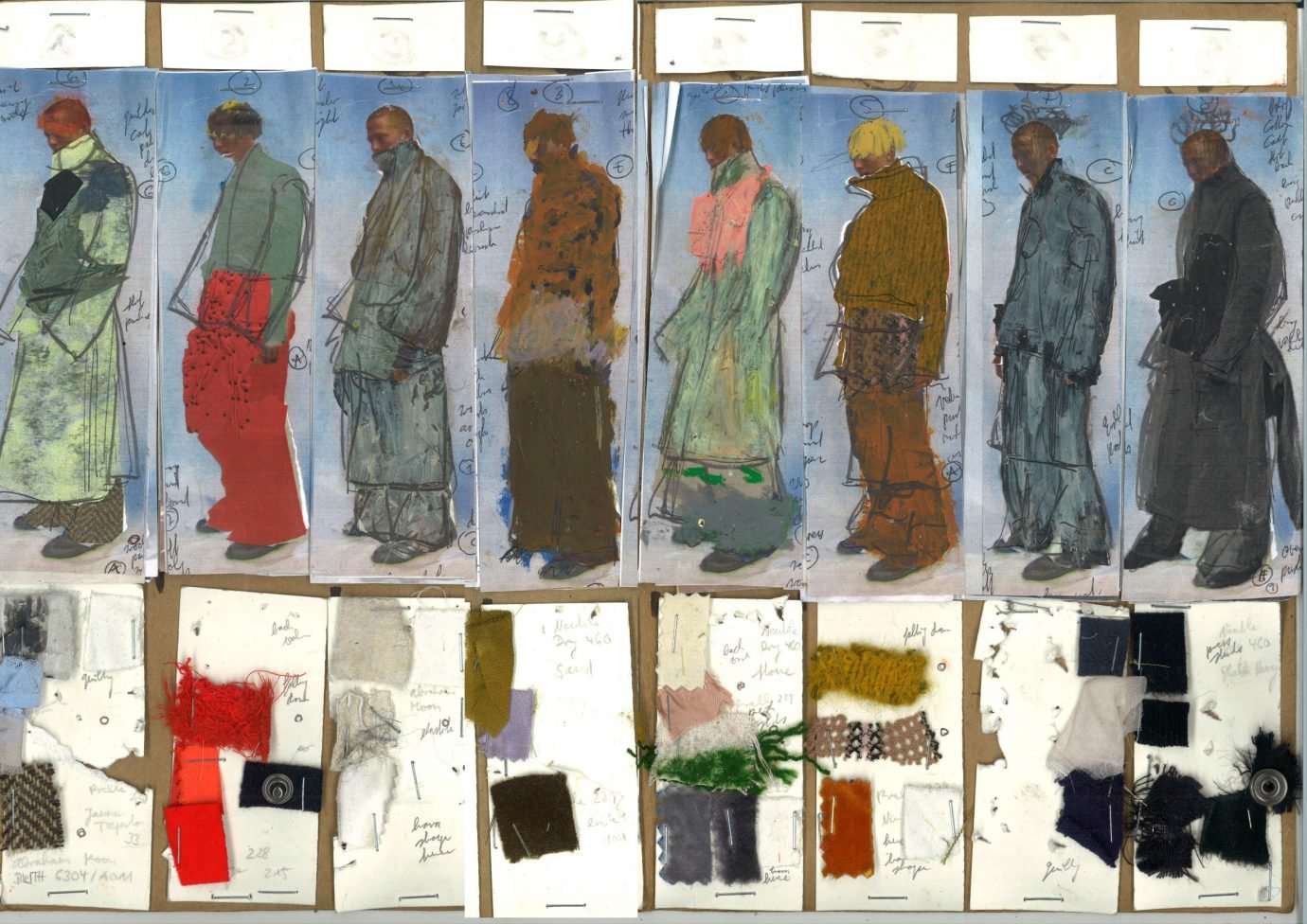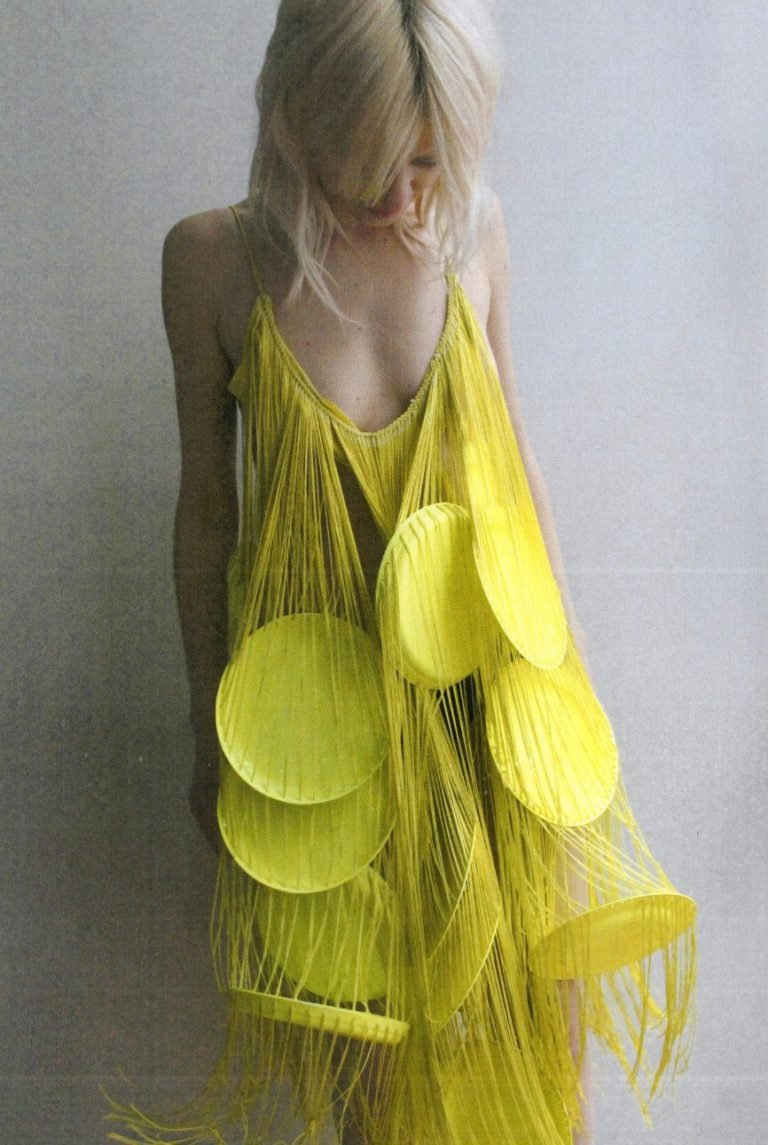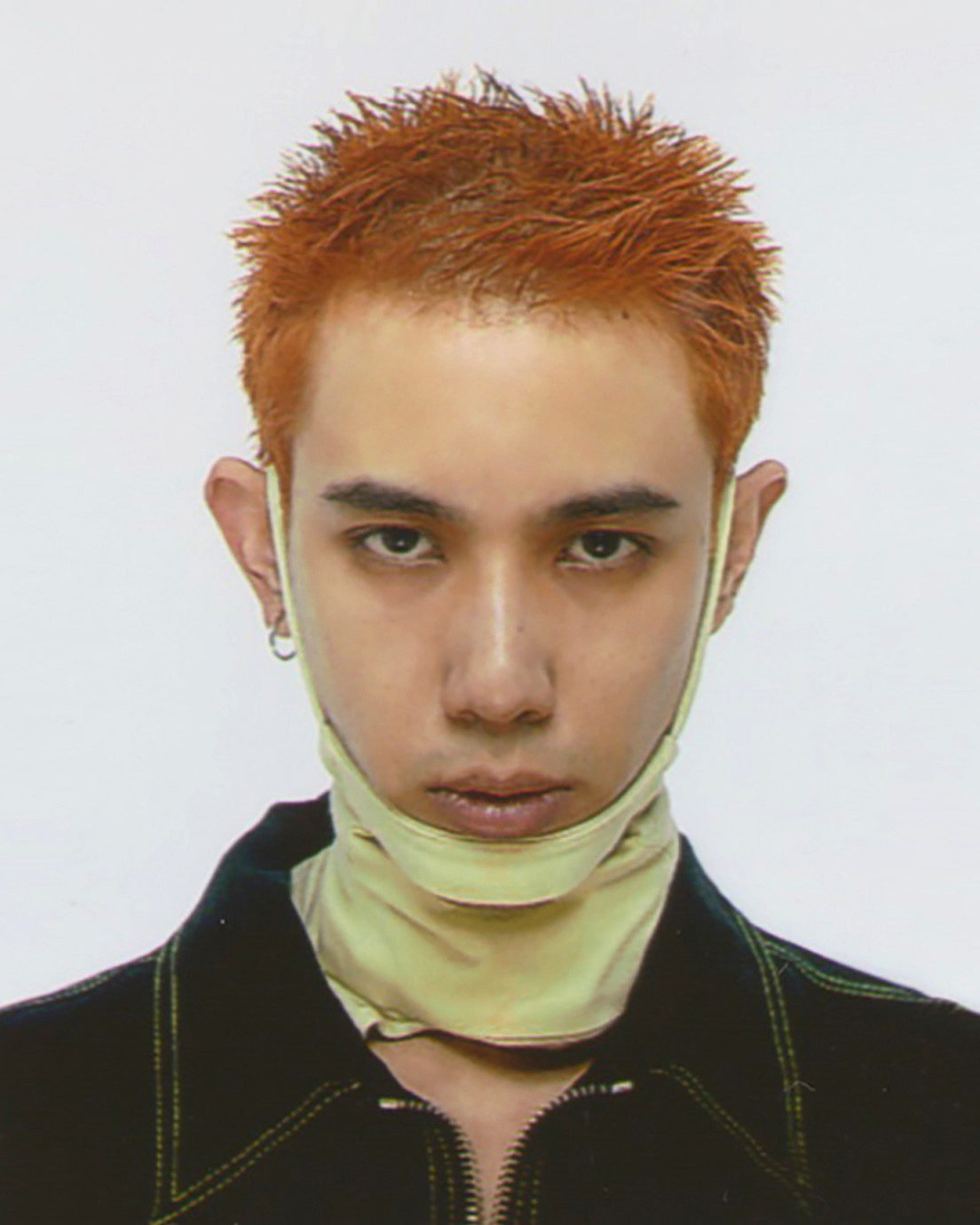After moving to Athens from hometown Santorini to complete her first degree in graphic design, the self-declared ‘doer’ soon realised that fashion was a better fit, and so she went to study at The Antwerp Fashion Department, the only institution she applied for. This is Eftychia Karamolegkou: singular, rebellious, focused, specific. However, these are not the characteristics that first strike you when meeting her, but rather, her infectious charm and warmth, and her passion for the woman she designs for. Citing her determination as a reflection of her upbringing, she explains that, “Islanders believe we can do everything by ourselves because we aren’t connected with other people. My whole life, when I’ve been told to do something, I have always gone and done the opposite.”
Eftychia thrived at Antwerp, where her final collection was also tailoring focused, then took a year off to pursue internships at Mary Katrantzou, Antonio Marras, and Marques Almeida, where she became “even more obsessed.” She explains that “it opens your mind to being more flexible about perceiving things, because you learn to embrace everything, even the mistakes, and try to use them in the end in a way where they’re not a mistake.” This was the perfect springboard to her Central Saint Martins MA. Peering down at the printed lineup of her final collection, Eftychia explains that it was here, through the physiologically based approach of CSM where you are asked questions that you don’t want to hear, that the once vague silhouette of her woman materialised. “When you are pushed to your creative limits you realise that in fact the things you thought you couldn’t do, you can do, and more. In general, I don’t mind to torture and stretch myself to get the results.”

